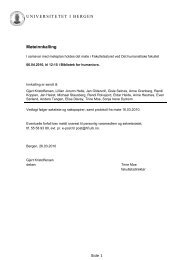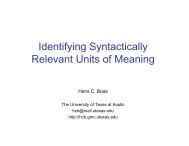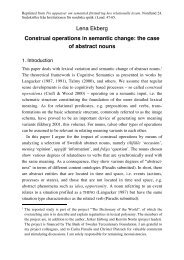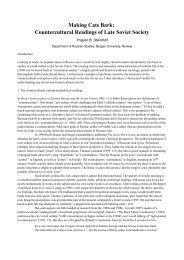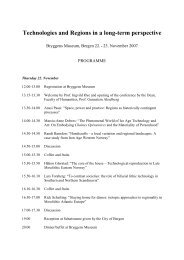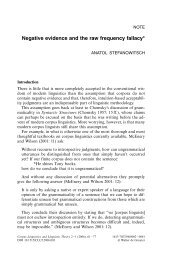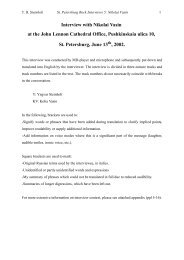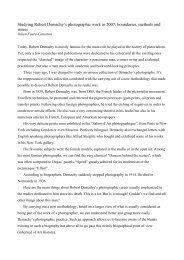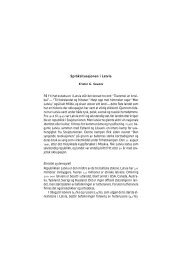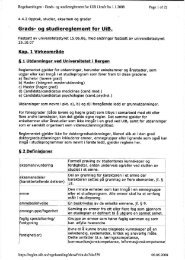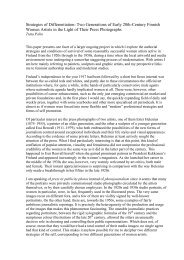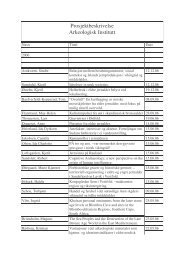THE BOOK OF POEMS IN TWENTIETH-CENTURY ... - TopReferat
THE BOOK OF POEMS IN TWENTIETH-CENTURY ... - TopReferat
THE BOOK OF POEMS IN TWENTIETH-CENTURY ... - TopReferat
You also want an ePaper? Increase the reach of your titles
YUMPU automatically turns print PDFs into web optimized ePapers that Google loves.
This emphasis on the future is also typical of Gippius. She writes of what she<br />
desires, of what will be. Her poetry is guided by what Olga Matich calls "dynamic<br />
faith"—the constant journey towards God, without ever realizing Him fully. It is only<br />
after death that God can be fully known. In her article "Влюбленность," she wrote: Так<br />
же, как мир, Бог, правда, жизнь—никогда нами не могут быть познаны, но лишь<br />
все более и более познаваемы, так не узнаем мы и этой тайны. Знание есть конец,<br />
смерть, или порог безвременья, иной жизни; познавание—жизнь мира, движение во<br />
времени. 137<br />
In the journey from "Рождение" to "Вечноженственное," God has indeed<br />
become more knowable to Gippius. Now approaching Him from her own personal<br />
experience by means of her private trinity of Mary, Teresa and Solveig, she has moved<br />
from the impersonal announcement of the birth of a new faith to her own private quest for<br />
God—a quest which, she knows, will never find resolution on earth.<br />
Not only is it unrealizable, but in seeking it, Gippius will continuously face<br />
obstacles, primarily in the form of doubts. 138<br />
In Сияния Gippius often expresses this<br />
alternation between doubt and faith in the placement of her poems, one of the clearest<br />
examples being the separation of "Рождение" and "Вечноженственное" (the fifth and<br />
seventh poems in the book respectively) by a poem of worldly despair and cynicism,<br />
"Женскость." After proclaiming the birth of the religious ideal in "Рождение," Gippius<br />
falls back to earth in "Женскость" before embarking upon her personal quest for<br />
godliness in "Вечноженственное."<br />
137 Gippius, Dnevniki, vol. 1, 265. Matich contrasts Gippius's dynamic faith to Merezhkovsky's static<br />
solutions: "Unlike Merežkovskij, who views such notions as vlublennost' and consecrated flesh as static<br />
philosophical concepts or as mysteries which must be solved, Gippius emphasizes the significance of the<br />
process involved." Matich, Paradox, 74.<br />
138 Her "dynamic faith can be characterized by the alternation of doubt and hope that the divine revelation<br />
will take place." Matich, Paradox, 37.<br />
106



